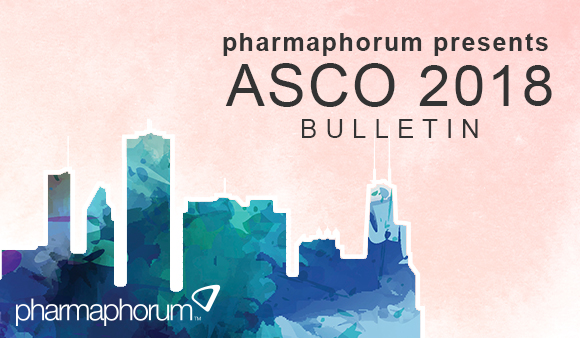ASCO 2018 - Monday 4th June: BMS tries different tack as Merck & Co locks out lung cancer I/O

Merck & Co has dominated proceedings at the American Society of Clinical Oncology (ASCO), with a steady flow of data from its Keytruda checkpoint inhibitor drug at the conference in Chicago.
The message US Merck has about Keytruda (pembrolizumab) is that it has many of the bases covered in first-line lung cancer, where Bristol-Myers Squibb’s first-to-market rival Opdivo has struggled to show efficacy.
To summarise, Merck & Co has data from the KEYNOTE-042 study showing Keytruda works in first line non-small cell lung cancer – and only 1% of their tumour cells need to express the PD-L1 biomarker for it to work.
There’s also data from KEYNOTE-407 showing Keytruda and chemotherapy significantly improved overall survival in first-line squamous disease.
Data from another arm of the same trial shows that Keytruda monotherapy is also an option for those who may not be physically fit enough to withstand chemotherapy.
But BMS has not given up and, aside from the collaboration with Nektar I already reported on, is trying to get its Opdivo (nivolumab) PD-1 to work using a different biomarker as a predictor of success.
At ASCO 2018 BMS unveiled an exploratory analysis from part of the phase 3 CheckMate-227 suggesting Opdivo and its other immunotherapy Yervoy extended progression-free survival in first line NSCLC, compared with chemo alone with both squamous and non-squamous tumour cells, in patients where less than 1% of tumour cells are expressing PD-L1.
The analysis of a small group of patients with PD-L1 below 1% and high TMB, had PFS rates at 1 year of 45% with Opdivo plus low-dose Yervoy.
Those treated with Opdivo and chemo had a one-year PFS rate of 27%, while those on chemo alone had a PFS rate of 8%.
In patients with low TMB and PD-L1 below 1%, the one-year PFS rate was 18% with both Opdivo plus low-dose Yervoy and Opdivo plus chemotherapy, and was 16% with chemotherapy.
Hossein Borghaei, study investigator and chief thoracic medical oncologist at Fox Chase Cancer Center in Philadelphia, said: “Taken together with the totality of CheckMate -227 data presented to date, the results reinforce that TMB status provides clinically relevant information for Opdivo-based combinations and that Opdivo plus low-dose Yervoy provided durable efficacy in patients with high TMB.”
But there’s still a long way to go with this – it’s a very small patient group – but BMS hopes that one day TMB will be another regularly-used test that doctors could use to decide what to prescribe to their patients.
BMS also presented data from the Opdivo that reinforced its use in an approved indication of late-stage melanoma, using Yervoy as a benchmark.
In updated results from the CheckMate-238 study, Opdivo continued to demonstrate statistically longer recurrence-free survival of 62.6%, the primary endpoint of the study, versus 50.2% for Yervoy at a minimum follow-up of 24 months across key subgroups, including disease stages and BRAF mutation status.
Daiichi to file joint and tendon cancer drug
There’s more to ASCO 2018 than the ongoing battle between Merck and BMS though. Japan’s Daiichi Sankyo has unveiled new data and said it plans to ask the FDA to approve pexidartinib in tenosynovial giant cell tumour (TCGT) – a debilitating cancer of the joint or tendon sheath for which there is no approved therapy.
Pexidartinib is an investigational, oral small molecule that potently inhibits CSF1R (colony stimulating factor-1 receptor), a primary growth driver of abnormal cells in the synovium that cause TGCT.
The phase 3 ENLIVEN study, the first placebo-controlled study of a systemic investigational therapy in patients with tenosynovial giant cell tumour (TGCT), enrolled patients where surgery would be associated with potentially worsening functional limitation or severe morbidity.
Oral pexidartinib significantly reduced tumour size (39% overall tumour response rate), compared to no tumour response in patients treated with placebo.
Safety-wise, serious, non-fatal liver toxicity with increased bilirubin was observed in 4 percent of all 91 ENLIVEN patients treated with pexidartinib.
ENLIVEN is a double-blind, randomised, global multi-center, pivotal phase 3 study, in patients with symptomatic advanced TGCT for whom surgical removal of the tumour would be associated with potentially worsening functional limitation or severe morbidity.
The first part of the study, the double-blind phase, enrolled 120 patients who were randomised to receive either pexidartinib or placebo at 1000 mg/d for two weeks followed by 800 mg/d for 22 weeks in order to evaluate the efficacy and safety of pexidartinib versus placebo.
The primary endpoint of the study was the percentage of patients achieving a complete or partial response after 24 weeks of treatment (Week 25), as assessed with centrally-read MRI scans using RECIST 1.1 criteria. Key secondary endpoints included range of motion, response by tumour volume score, PROMIS physical function, stiffness and measures of pain reduction.













